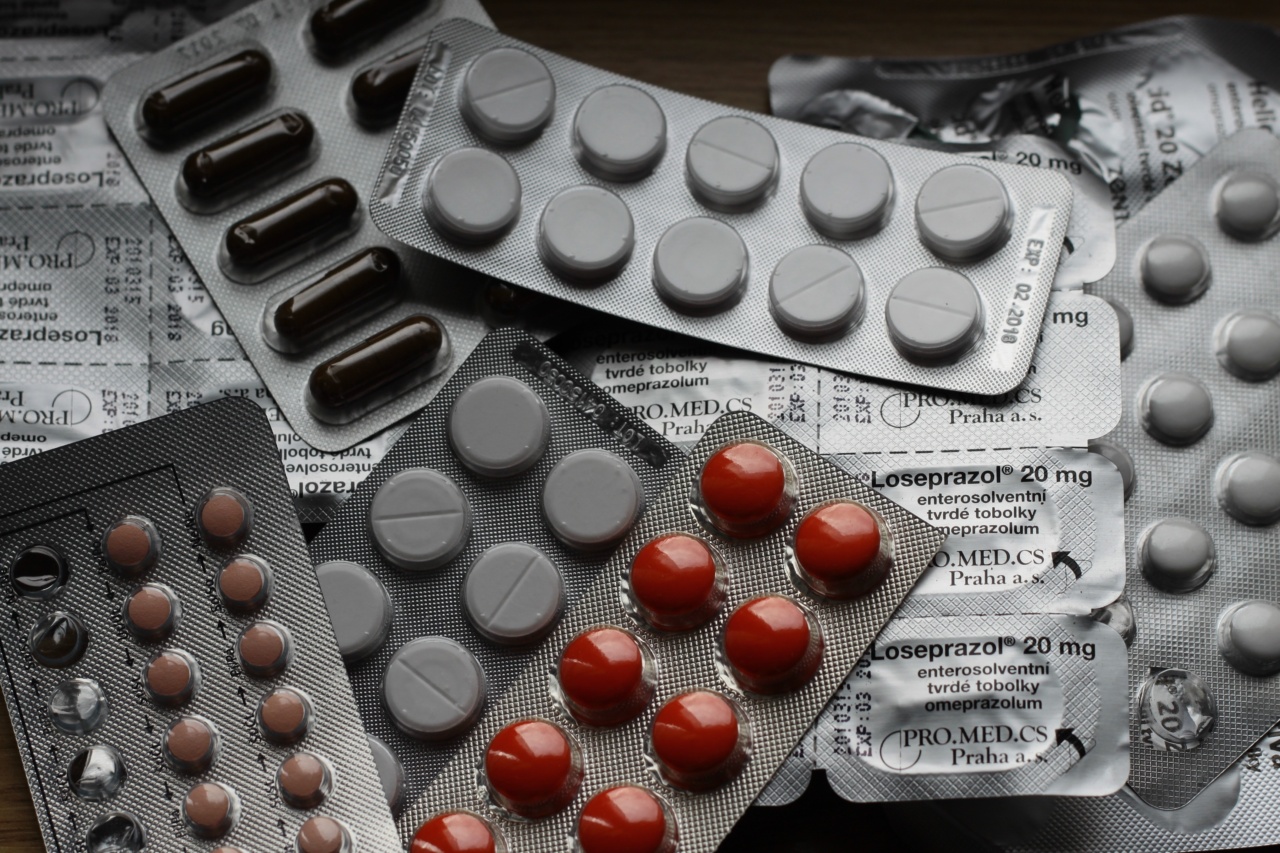Remembering: These pills do not endanger her.
The Purpose of This Article
The purpose of this article is to provide information and reassurance regarding the safety of specific pills. It is important to dispel any concerns or fears that may arise when it comes to taking medication.
This article aims to educate and empower readers by addressing common misconceptions and promoting informed decision-making.
Understanding Medication Safety
When it comes to taking pills, it is natural to have concerns about their safety.
However, it is vital to remember that pharmaceutical companies and health authorities rigorously test and regulate medications before they are made available to the public. This ensures that they are effective and safe for consumption.
The Role of Clinical Trials
Clinical trials play a crucial role in evaluating the safety and efficacy of medications. Before a new drug is approved, it goes through several phases of testing on human volunteers.
These trials involve rigorous monitoring and data collection to assess potential risks and benefits.
Approved Medications Under Strict Regulations
Once a medication successfully passes clinical trials, it is further scrutinized by regulatory authorities such as the Food and Drug Administration (FDA) in the United States.
These agencies thoroughly review the data gathered during clinical trials to ensure that the medication meets stringent safety standards.
Understanding Side Effects
Every medication has the potential to cause side effects. It is important to remember that the occurrence of side effects doesn’t necessarily mean the medication is dangerous. Side effects can vary in severity and may differ from person to person.
The majority of side effects are mild and transient, while severe reactions are relatively rare.
Consulting Healthcare Professionals
When prescribed a new medication, it is crucial to consult with a healthcare professional. They can provide personalized advice based on your medical history, potential drug interactions, and individual needs.
It is important to disclose any allergies or pre-existing conditions to ensure the prescribed medication is appropriate and safe for you.
Drug Interactions and Precautions
Some medications may interact with each other, potentially leading to adverse effects. It is essential to inform your healthcare provider about all the medications you are taking, including over-the-counter drugs, supplements, and herbal remedies.
This information allows them to assess potential interactions and make informed decisions regarding your treatment plan.
Frequent Misconceptions
There are several misconceptions surrounding medication safety. These misconceptions often stem from misinformation or fear of potential harm. Let’s address a few common myths:.
Myth 1: Medications Are Always Dangerous
This is a widespread misconception fueled by sensationalized stories and anecdotal evidence. While it is true that no medication is entirely risk-free, the vast majority of prescribed medications have a proven safety profile.
Their potential benefits often far outweigh the minimal risks they may pose.
Myth 2: Generic Medications Are Inferior
Generic medications are required to contain the same active ingredients as their brand-name counterparts. They undergo thorough testing to ensure their effectiveness and safety.
The difference in price between generic and brand-name medications primarily stems from marketing and patent protection rather than the quality or safety of the product.
Myth 3: Natural or Herbal Remedies Are Safer
While natural or herbal remedies may seem like a safer alternative, they can carry their own risks. Herbal products are not regulated in the same way as conventional medications, and their safety and efficacy often lack scientific evidence.
It is crucial to consult with healthcare professionals before relying solely on natural remedies.
Fact 1: Extensive Drug Testing and Regulation
Pharmaceutical companies invest significant resources into the testing and development of new medications. These drugs undergo rigorous clinical trials and regulatory scrutiny before they are approved for use.
This process ensures that they meet high safety and efficacy standards.
Fact 2: Adverse Reactions Are Rare
Severe adverse reactions to medications are relatively uncommon. Most side effects are mild and temporary, resolving on their own without causing any serious harm.
Healthcare professionals carefully assess the risk-to-benefit ratio when prescribing medications and take into account individual patient characteristics.
Fact 3: Proper Storage and Usage
To ensure medication safety, it is essential to store them correctly and follow the prescribed usage instructions. Medications should be kept in a cool and dry place, away from direct sunlight and out of the reach of children.
Taking the correct dosage at the recommended intervals reduces the likelihood of adverse effects.
Fact 4: Open Communication with Healthcare Providers
Open and transparent communication with healthcare professionals is crucial when it comes to medication safety.
Sharing information about any pre-existing conditions, allergies, or other medications being taken enables them to provide the best possible care. Regular check-ups help monitor potential side effects and ensure the ongoing safety and effectiveness of the medication.
Conclusion
It is important to approach medication usage with an informed and rational mindset. While all medications carry some risk of side effects, they are overwhelmingly safe when prescribed and used correctly.
By understanding the rigorous testing and regulation processes involved in medication development, consulting with healthcare professionals, and dispelling common misconceptions, individuals can alleviate concerns and confidently benefit from the myriad of life-improving medications available.





























